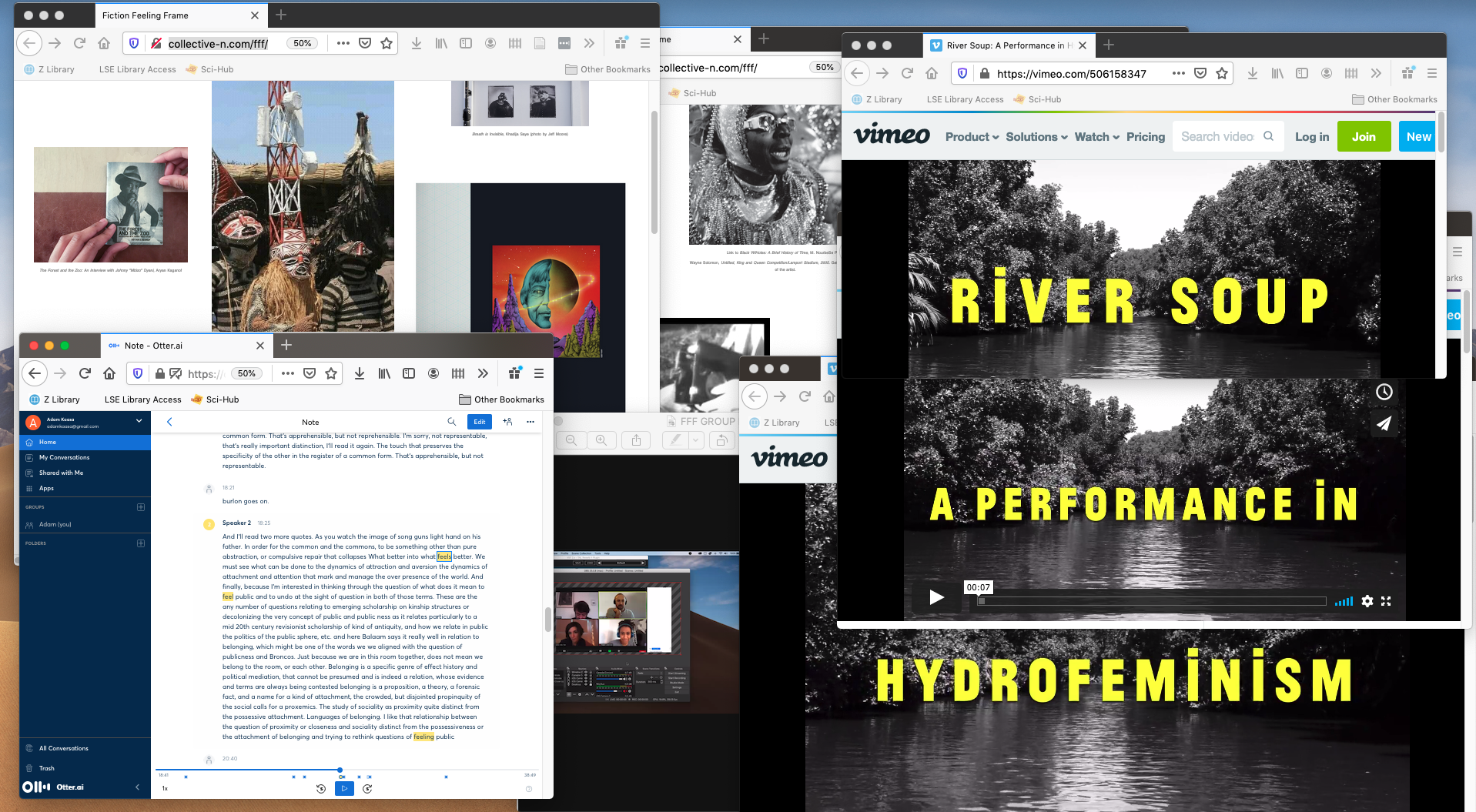Current Research
Feeling Public
On Getting Lost
Emotional Biennials
Fiction Feeling Frame
RELAY
Gentrification as Hate
 Fiction Feeling Frame - RCA Research Biennial, February 2021
Fiction Feeling Frame - RCA Research Biennial, February 2021FICTION FEELING FRAME (2020 - )
Co-founded with Dr Thandi Loewenson and Dr David Burns, RCAfff.industries
Collaborators (so far...)
Ibiye Camp // Clara Kraft Isono // Gabriella Hirst // Steve Salembier // Kelly Spanou // Elise Hunchuck // Mirna Pedalo // Matteo Mastrandrea // Benjamin Reynolds // Valle Medina // Jane Hall // Korina Zaromytidou // Ariel Caine // Linn Phyllis Seeger
ABOUT FFF
This research theme operates through fiction, feeling and frame. These terms are topics and methods that open up a discussion about multiple and contradictory realities through combative modes of architectural practice including performance, earth-writing, policy engagement, critical gardening, conflict resolution, short fiction film, scenography, curation and photography, practices of abolition, transmutation and figuration.
We are interested in feeling as emotional geographies, tying them to affective economies such as election campaigns, protest movements, the experience of shared grief and loss in times such as the current pandemic, the optimism of meritocracy, or the monotony of the domestic. We consider how emotions – amplified through media, architecture and the urban – not only move us but move the world. Approaching emotions through the speculative, the fabulated and the structure of new forms of narration, or through interruptions, glitches and ruptured registers we aim to reveal how architecture and design shapes our social interactions, intergenerational relations and equalities.
We aim to expand on the framing of time beyond the linear triadic frame of past, present, future. As an evolving and collaborative theme, we invoke and involve situated mediations of image, of stone and bronze, of waste, of stories and feeds and posts and walls, and task concern with how these are made, unmade and remade. If fiction is a form of combat, what new terrains of struggle are invoked? If to engage in fiction is to make or produce, what critical practices are crafted in the act of fictioneering, making-up as making-with?
The FFF research theme opens up a discussion in the School of Architecture and beyond about multiple and contradictory realities of lived, digitised, mediated, speculated and contested spatial lives through the lenses, literatures, entrapments, directions, and false ends of fiction, feeling, and frame.